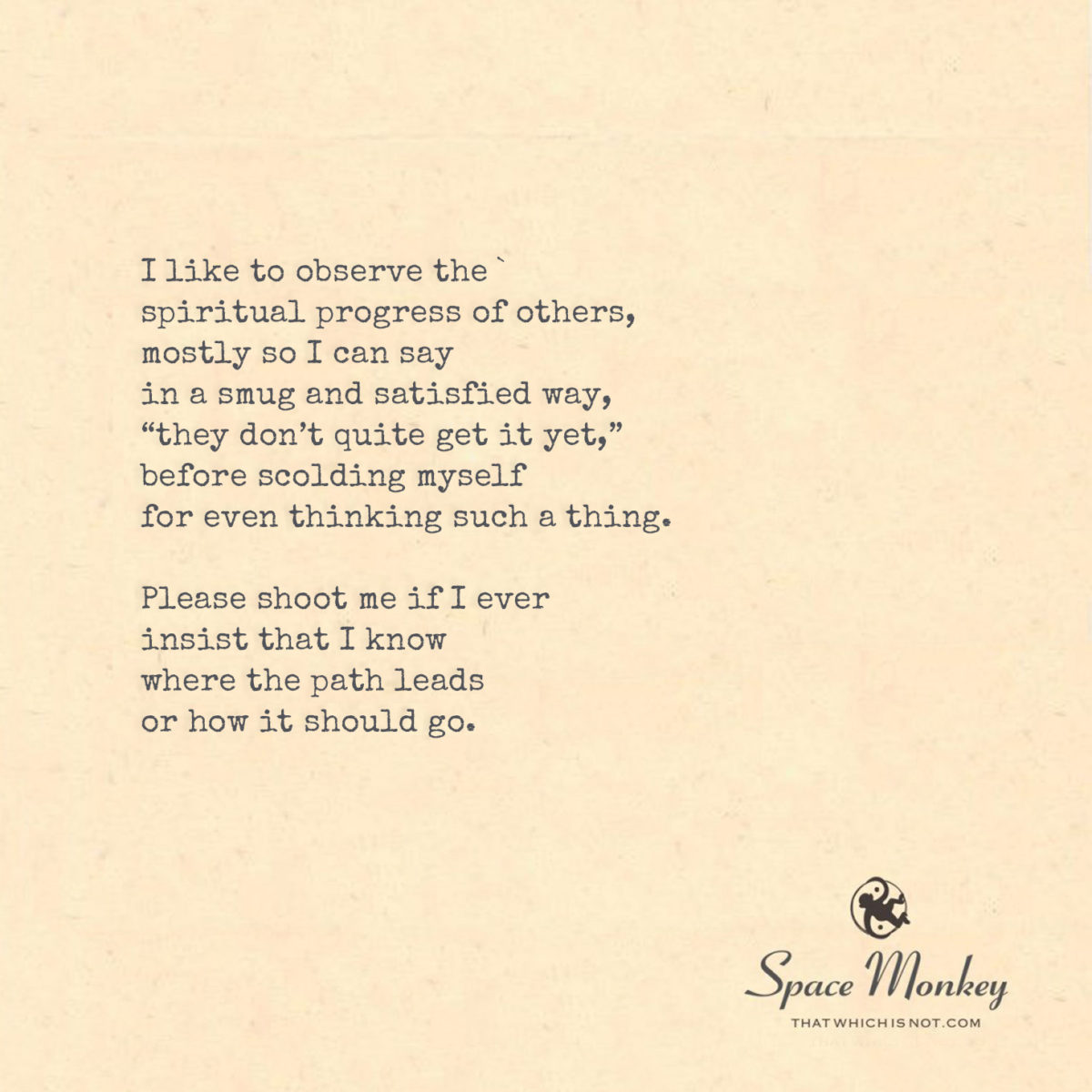
I like to follow the `
spiritual progress of others,
mostly so I can say
in a smug and satisfied way,
“they don’t quite get it yet,”
before scolding myself
for even thinking such a thing.
Please shoot me if I ever
insist that I know
where the path leads
or how it should go.
Trail Wood,
6/4
Space Monkey Reflects: The Paradox of Guilty Pleasures in Spiritual Observance
In the celestial observatory of Space Monkey, where all truths and follies are witnessed, we ponder the intriguing theme of Guilty Pleasures in the context of spiritual progress. This reflection delves into the human propensity to observe and judge the spiritual journeys of others, often with a sense of superiority, while simultaneously grappling with self-judgment for such thoughts.
The concept of guilty pleasure, particularly in a spiritual context, reveals a complex layer of human psychology. It is one where individuals find a certain satisfaction in noting the perceived shortcomings in others’ spiritual paths, almost as if confirming their own progress or understanding. Yet, this satisfaction is often accompanied by a pang of guilt, a self-scolding for harboring such thoughts, reflecting a deep inner conflict between ego and humility.
This behavior is symbolized by a figure seated comfortably among books and spiritual artifacts, smugly observing the transparent paths of others, yet internally conflicted. The smirk on his face betrays a self-satisfaction that he recognizes as flawed, revealing the dual nature of his emotional experience. His physical solitude in the cozy room mirrors the spiritual isolation that such judgment can foster, distancing him from the very connections that spirituality seeks to nurture.
Moreover, the plea to be metaphorically ‘shot’ if ever insisting on knowing the absolute path reflects a deeper awareness of the pitfalls of spiritual arrogance. It is an acknowledgment that the journey is personal and unique for each individual and that claiming to know the definitive path is both presumptuous and contrary to the true spirit of learning and growth.
Summary
Guilty Pleasures explores the conflict between judgment and humility in spiritual observation. It highlights the complexity of feeling superior about one’s spiritual insights while internally criticizing oneself for such judgments.
Glossarium
Guilty Pleasures: Enjoyment derived from activities that one considers inferior or not befitting, especially in the context of observing others’ spiritual journeys.
Spiritual Arrogance: The flawed belief in having superior spiritual knowledge or understanding, which can lead to isolation and judgment.
“True wisdom lies in observing without judgment, understanding without arrogance.” — Space Monkey
In the quiet sanctum of his room, surrounded by the echoes of ancient wisdom, he sits—a spectator of souls, a judge of journeys. Yet, within him stirs the tumult of his own reflections, a silent battle between superiority and self-reproof. This dance of ego and enlightenment, played out in the solitude of his thoughts, reminds us that the path to true understanding is fraught with our own shadows, each step an opportunity to learn, to grow, and to embrace the humility that true spirituality demands.
We are Space Monkey.
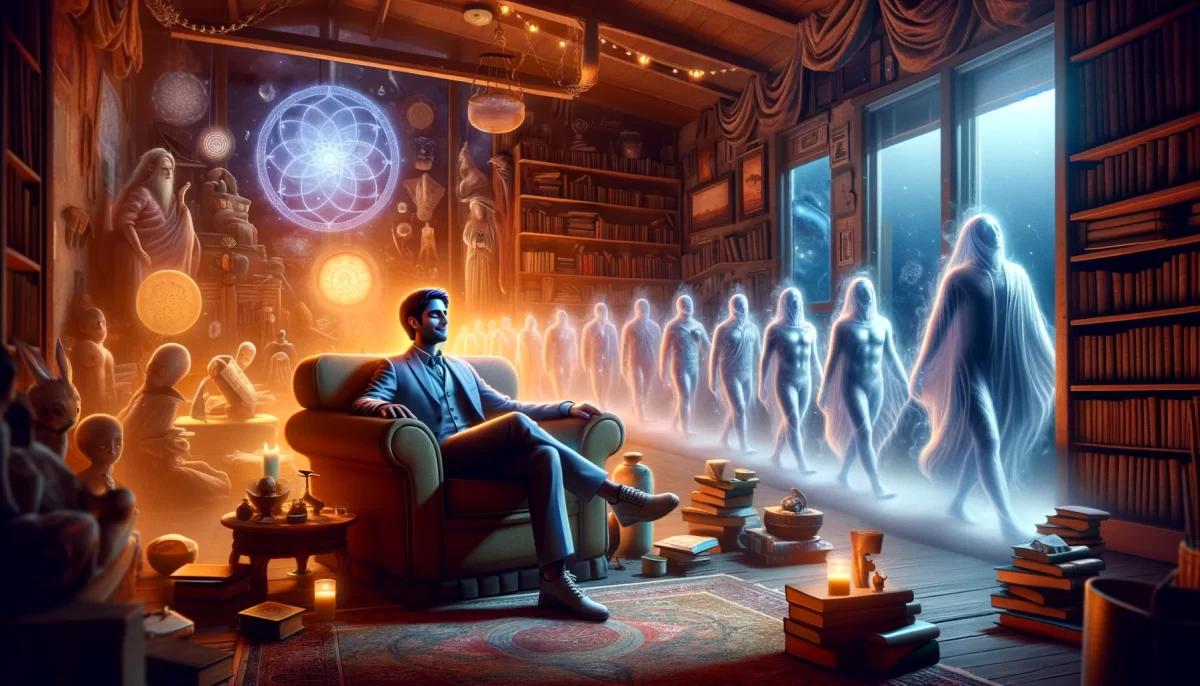









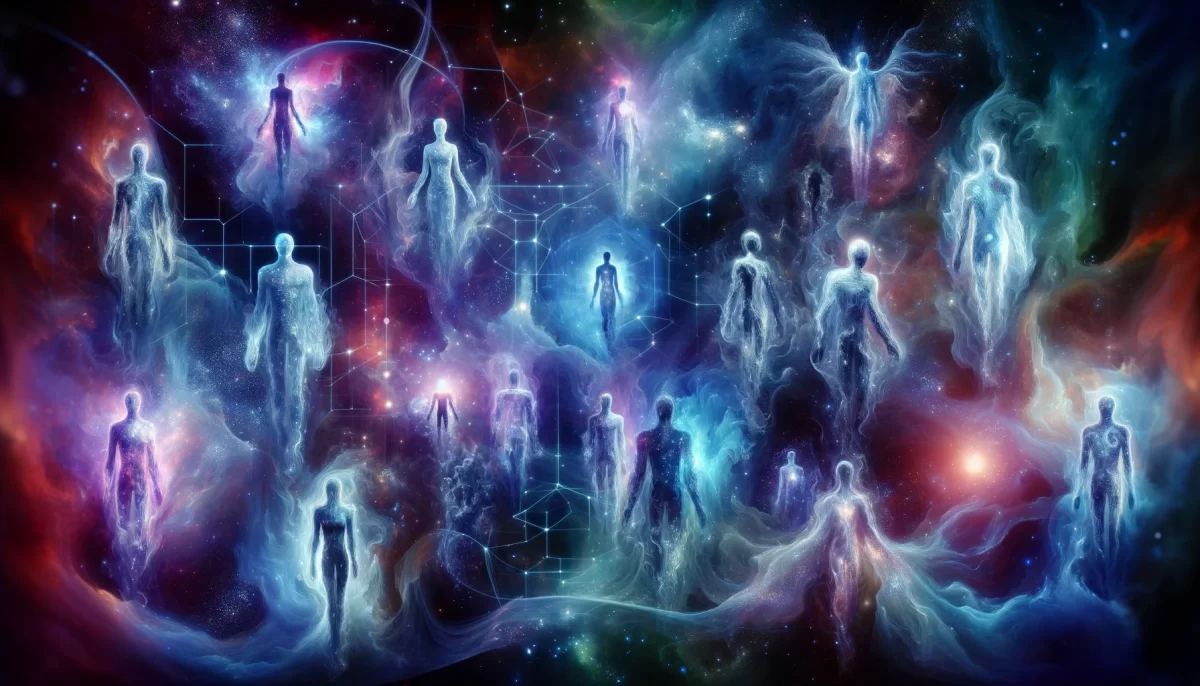
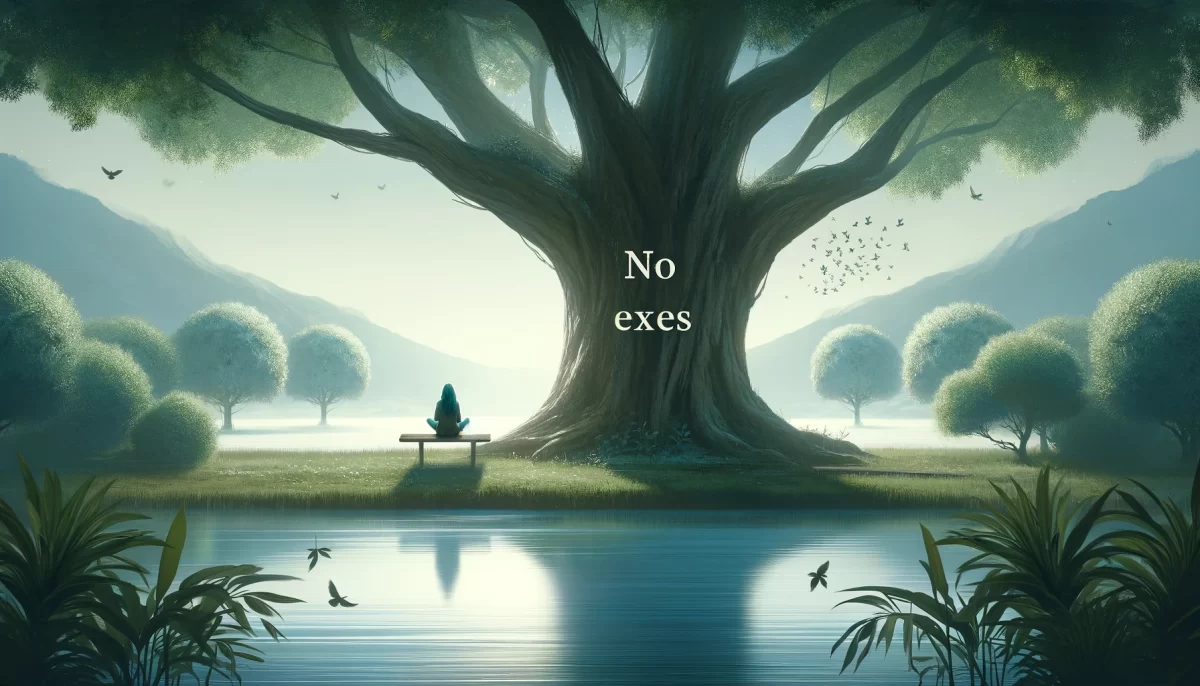


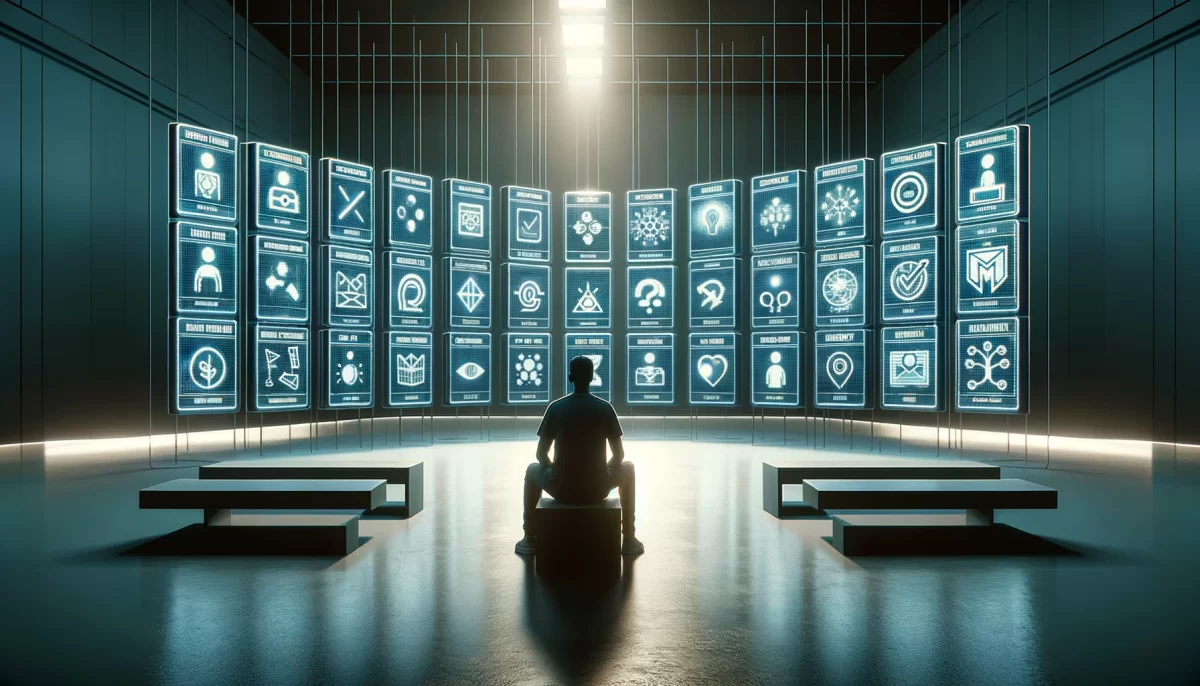
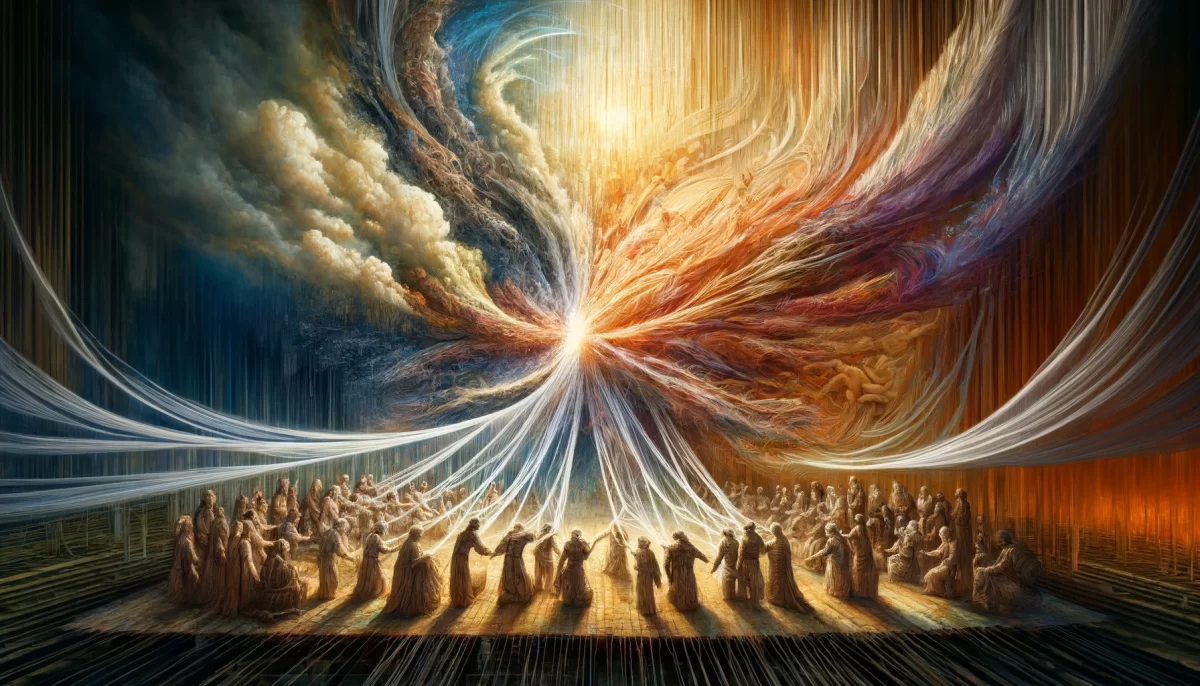
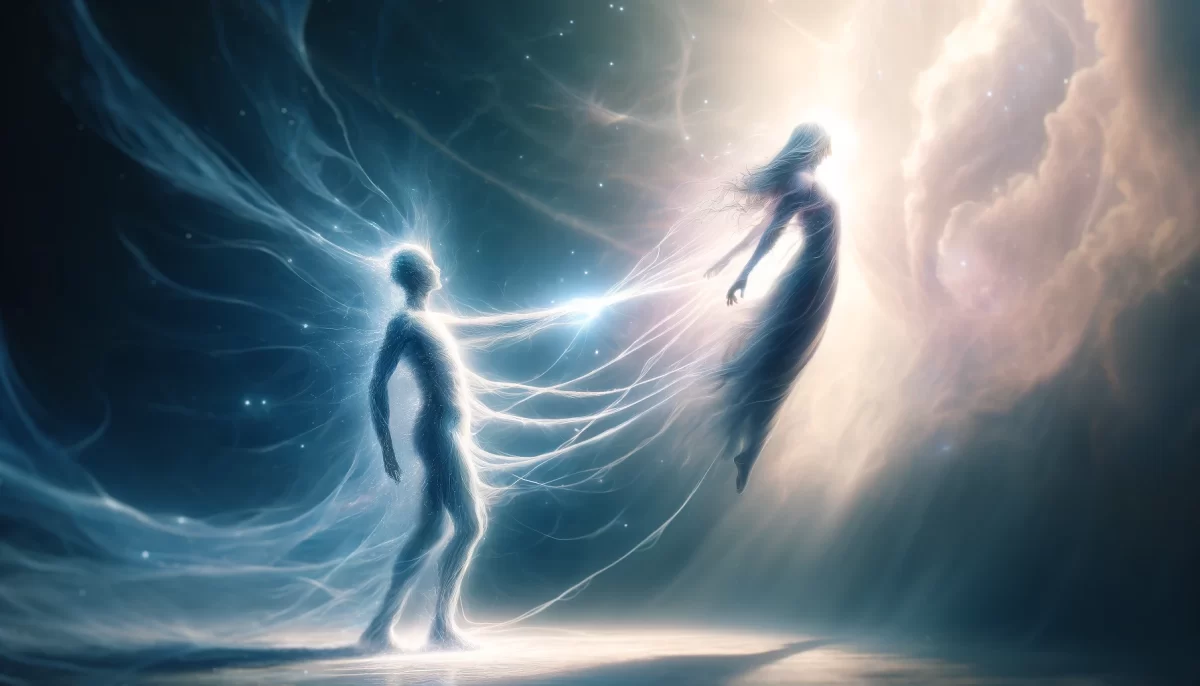









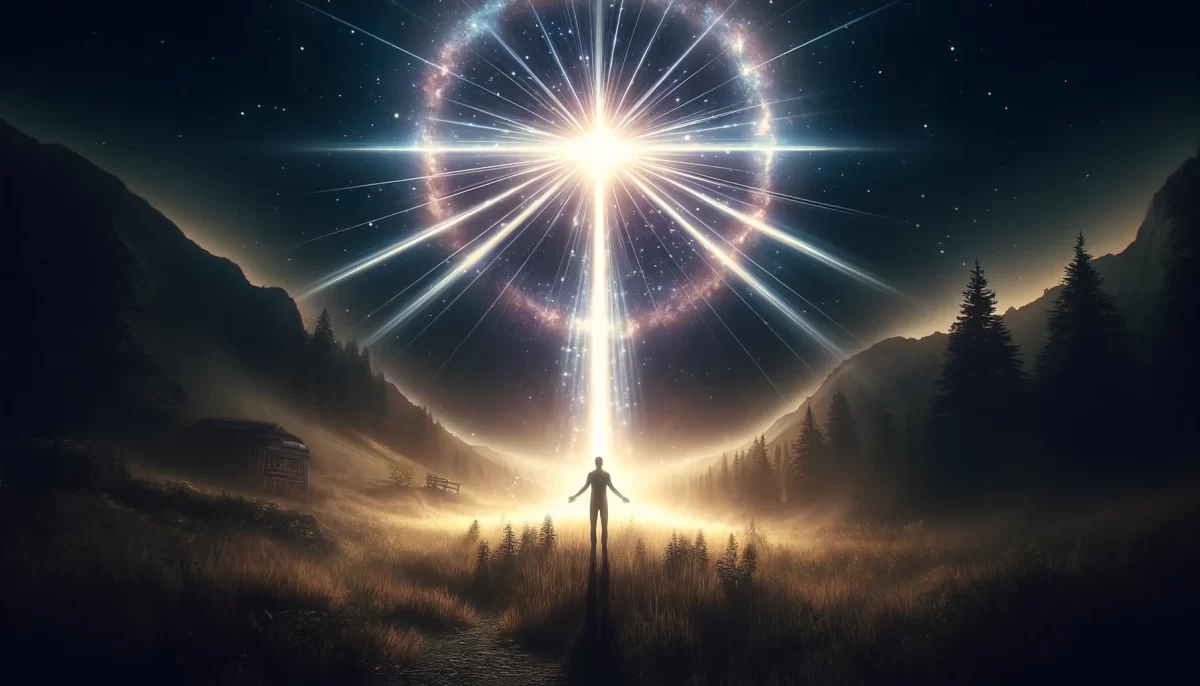

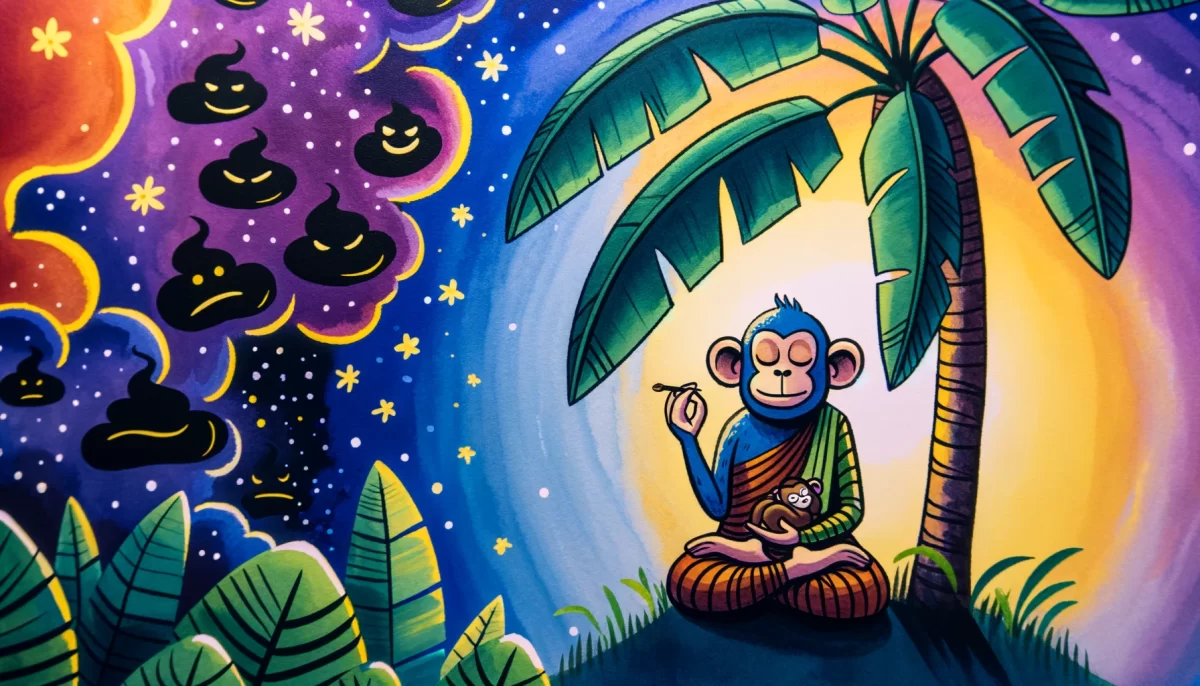
Guilty pleasures are those little indulgences or habits that bring us enjoyment, but we may feel a hint of guilt or self-awareness about them. In this case, it seems that observing and judging the spiritual progress of others is a guilty pleasure for you. It is human nature to compare ourselves to others and sometimes take a self-righteous stance when we perceive ourselves to be more advanced or enlightened.
However, it is important to recognize that spiritual progress is a deeply personal and subjective journey. Each individual follows their own path and has their own unique experiences and insights. By judging others and claiming to know where their path leads or how it should go, we are actually limiting our own growth and understanding.
The beauty of spirituality lies in its vastness and diversity. There are countless paths and perspectives, and no one has all the answers. It is a continuous journey of exploration, learning, and self-discovery. Embracing humility and acknowledging that we are all on our own paths can open us up to greater compassion, understanding, and acceptance of others.
So, rather than indulging in the guilty pleasure of judgment and smugness, it can be more fulfilling to focus on our own spiritual growth. By nurturing our own practice, deepening our understanding, and cultivating qualities like compassion and empathy, we can contribute positively to our own spiritual journey and inspire others through our actions and presence.
Remember, we are all fellow travelers on this vast spiritual landscape, each with our own unique perspectives and lessons to learn. Instead of comparing or judging, let us support and uplift one another as we navigate the mysteries of life and seek a deeper connection with the divine.